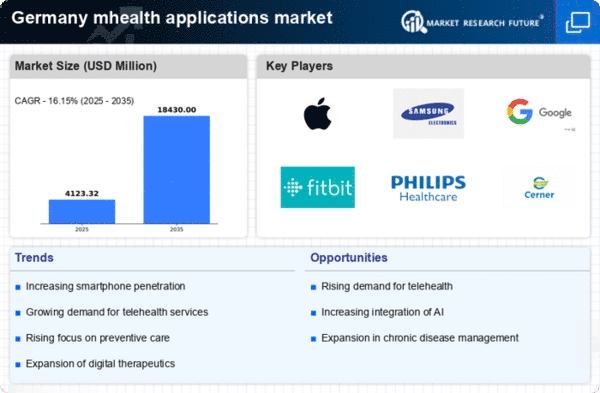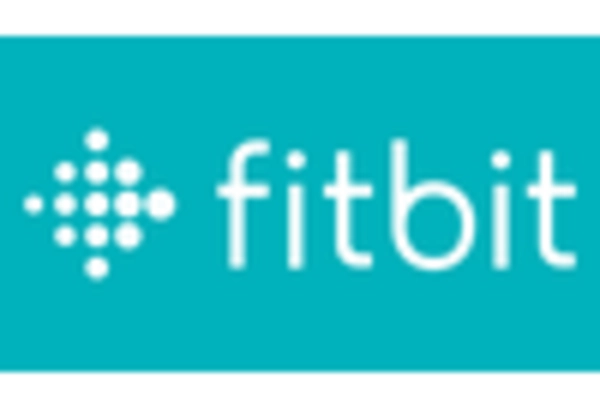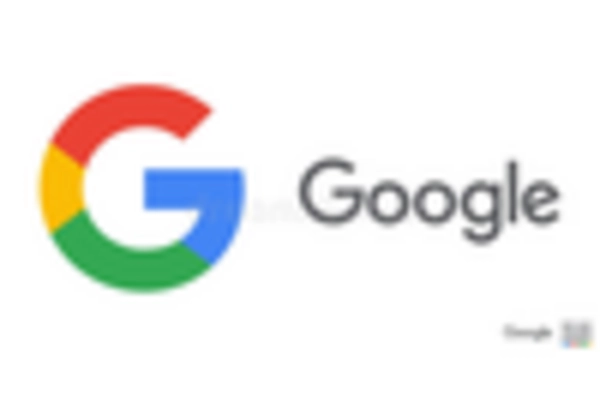Growing Interest in Health Data Security
Health data security has emerged as a critical concern within the mhealth applications market in Germany. With the increasing digitization of health information, consumers are becoming more aware of the importance of safeguarding their personal health data. This heightened awareness is prompting developers to prioritize security features in their applications, ensuring compliance with stringent data protection regulations. As of 2025, approximately 70% of users express concerns regarding data privacy, influencing their choice of mhealth applications. Consequently, companies that emphasize robust security measures are likely to gain a competitive edge in the mhealth applications market. This focus on data security not only builds consumer trust but also aligns with regulatory requirements, further driving market growth.
Increased Focus on Preventive Healthcare
The mhealth applications market in Germany is influenced by a growing focus on preventive healthcare. As awareness of health issues rises, individuals are increasingly seeking tools that promote healthy lifestyles and disease prevention. This shift is reflected in the rising adoption of applications that offer personalized health insights, fitness tracking, and dietary recommendations. Data indicates that around 40% of German adults actively use health-related applications to monitor their wellness. This trend suggests a cultural shift towards proactive health management, which is likely to drive the demand for mhealth applications. Consequently, stakeholders in the mhealth applications market are encouraged to innovate and expand their offerings to meet the evolving needs of health-conscious consumers.
Rising Demand for Remote Patient Monitoring
The mhealth applications market in Germany is experiencing a notable surge in demand for remote patient monitoring solutions. This trend is driven by an increasing emphasis on chronic disease management, where patients require continuous monitoring of their health conditions. According to recent data, approximately 30% of the German population suffers from chronic illnesses, necessitating innovative solutions to enhance patient care. The integration of mhealth applications facilitates real-time data collection and analysis, allowing healthcare providers to make informed decisions. Furthermore, the convenience of remote monitoring reduces the need for frequent hospital visits, thereby alleviating pressure on healthcare facilities. This shift towards remote care is likely to reshape the mhealth applications market, as stakeholders recognize the potential for improved patient outcomes and cost savings.
Government Initiatives Supporting Digital Health
Government initiatives in Germany are fostering a conducive environment for the growth of the mhealth applications market. The German government has implemented various policies aimed at promoting digital health solutions, including financial incentives for healthcare providers who adopt mhealth technologies. Additionally, the Digital Healthcare Act encourages the integration of digital health applications into standard care practices. As a result, healthcare providers are increasingly inclined to invest in mhealth solutions, recognizing their potential to enhance patient care and streamline operations. This supportive regulatory framework is expected to catalyze growth in the mhealth applications market, as more stakeholders engage with digital health innovations.
Technological Advancements in Mobile Health Solutions
Technological advancements play a pivotal role in shaping the mhealth applications market in Germany. The proliferation of smartphones and high-speed internet access has enabled the development of sophisticated health applications that cater to diverse user needs. Innovations such as artificial intelligence and machine learning are increasingly integrated into mhealth solutions, enhancing their functionality and user experience. For instance, predictive analytics can identify potential health risks, allowing for proactive interventions. As of 2025, it is estimated that over 60% of the German population utilizes smartphones, creating a vast user base for mhealth applications. This technological evolution not only improves accessibility but also fosters user engagement, driving growth in the mhealth applications market.

















Leave a Comment